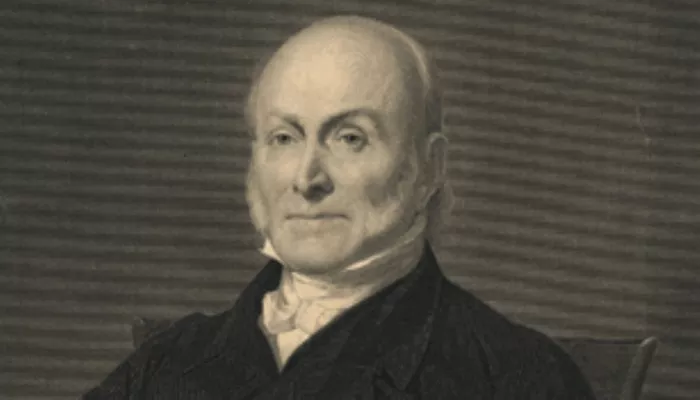February 9 has witnessed numerous significant events throughout American history, shaping the nation in various ways. This article delves into these events, providing detailed descriptions and context for each.
What Happened on February 9 in American History?
The Election of John Quincy Adams (1825)
On February 9, 1825, the U.S. House of Representatives elected John Quincy Adams as the sixth president of the United States. This election was notable because no candidate received a majority of electoral votes during the presidential election of 1824. The top three candidates were Adams, Andrew Jackson, and William H. Crawford. Since none achieved a majority, the decision fell to the House, where Adams was chosen despite Jackson having won the popular vote and a plurality of electoral votes.Adams’ presidency was marked by his ambitious agenda that included internal improvements and educational initiatives. However, his administration faced significant opposition from Jackson’s supporters, leading to a deeply divided political landscape. This event is crucial as it highlights early instances of political maneuvering and the complexities of the electoral process in the United States.
The Provisional Congress Elects Jefferson Davis (1861)
On February 9, 1861, Jefferson Davis was elected as the president of the Confederate States of America by the Provisional Congress. This election occurred during a tumultuous period in American history as Southern states seceded from the Union following Abraham Lincoln’s election in 1860.Davis’ leadership during the Civil War was characterized by his struggle to unify the Confederate states and manage their resources effectively. His presidency faced numerous challenges, including military defeats and economic hardships. The election of Davis symbolizes the deep divisions within the country and marks a pivotal moment in the lead-up to one of America’s most significant conflicts.
The Establishment of the United States Weather Bureau (1870)
February 9, 1870, saw Congress authorize the establishment of what would become known as the National Weather Service (NWS). This agency was created to provide weather forecasts and warnings to protect life and property from severe weather conditions.The formation of this bureau marked a significant advancement in meteorology and public safety. It laid the groundwork for modern weather prediction techniques and established protocols for disseminating weather-related information to the public. The NWS continues to play a vital role in disaster preparedness and response efforts across the nation.
The First College Basketball Game (1895)
On February 9, 1895, a significant milestone in sports history occurred when the first college basketball game was played at the Minnesota State School of Agriculture (now known as the University of Minnesota). The game featured teams from Minnesota State and Hamline College, ending with a score of 9-3.This event marked the beginning of basketball as an organized sport at colleges across America. The rules were still being developed, but this game laid the foundation for what would become one of America’s most popular sports. Over time, college basketball has evolved into a major cultural phenomenon, with events like March Madness capturing national attention.
Senator Joseph McCarthy’s Anti-Communist Campaign (1950)
On February 9, 1950, Senator Joseph McCarthy delivered a speech in Wheeling, West Virginia, where he claimed that communists had infiltrated the U.S. State Department. This marked the beginning of McCarthyism—a period characterized by heightened fears of communist influence in America.McCarthy’s accusations led to widespread investigations and hearings aimed at rooting out suspected communists from government positions and other sectors of society. His tactics often involved aggressive questioning and unfounded allegations, leading to ruined careers and lives. The era is remembered for its violation of civil liberties and has left a lasting impact on American political discourse regarding freedom of expression and government oversight.
The Inaugural Flight of Boeing 747 (1969)
February 9, 1969, marked a milestone in aviation history with the inaugural flight of the Boeing 747, also known as the “Jumbo Jet.” This aircraft was revolutionary for its size and capacity, allowing airlines to transport more passengers than ever before.The introduction of the Boeing 747 transformed air travel by making it more accessible to people around the world. It played a critical role in expanding international travel and tourism during the late 20th century. The aircraft’s design innovations set new standards for safety and comfort in commercial aviation.
The Sylmar Earthquake (1971)
On February 9, 1971, a powerful earthquake struck near Sylmar in Los Angeles County, California. Measuring 6.6 on the Richter scale, this earthquake caused extensive damage across Southern California and resulted in numerous casualties—64 people lost their lives while over 2,000 were injured.The Sylmar earthquake highlighted vulnerabilities in building codes and emergency response systems at that time. In its aftermath, California implemented stricter building regulations aimed at improving safety standards for structures prone to seismic activity. This event underscored the importance of disaster preparedness and resilience planning in urban areas.
Apollo 14 Returns to Earth (1971)
Also on February 9, 1971, NASA’s Apollo 14 mission successfully returned to Earth after completing its lunar landing mission—marking humanity’s third visit to the Moon. Astronauts Alan Shepard, Edgar Mitchell, and Stuart Roosa participated in this historic journey.Apollo 14 contributed valuable scientific knowledge about lunar geology through experiments conducted on its surface. Shepard famously hit two golf balls on the Moon during this mission—a moment that captured public imagination. The success of Apollo 14 reinforced America’s commitment to space exploration during a time when competing with other nations’ space programs was critical.
Conclusion
February 9 has been a day rich with historical significance in American history. From pivotal elections that shaped leadership during crises to advancements in science and technology that transformed daily life, each event reflects broader themes within American society—political division, innovation, resilience against natural disasters, and cultural evolution through sports.Understanding these events not only provides insight into America’s past but also helps contextualize current societal dynamics shaped by historical legacies. As we reflect on February 9 throughout history, we recognize both triumphs and challenges that have defined our national narrative.
Related Topics:

